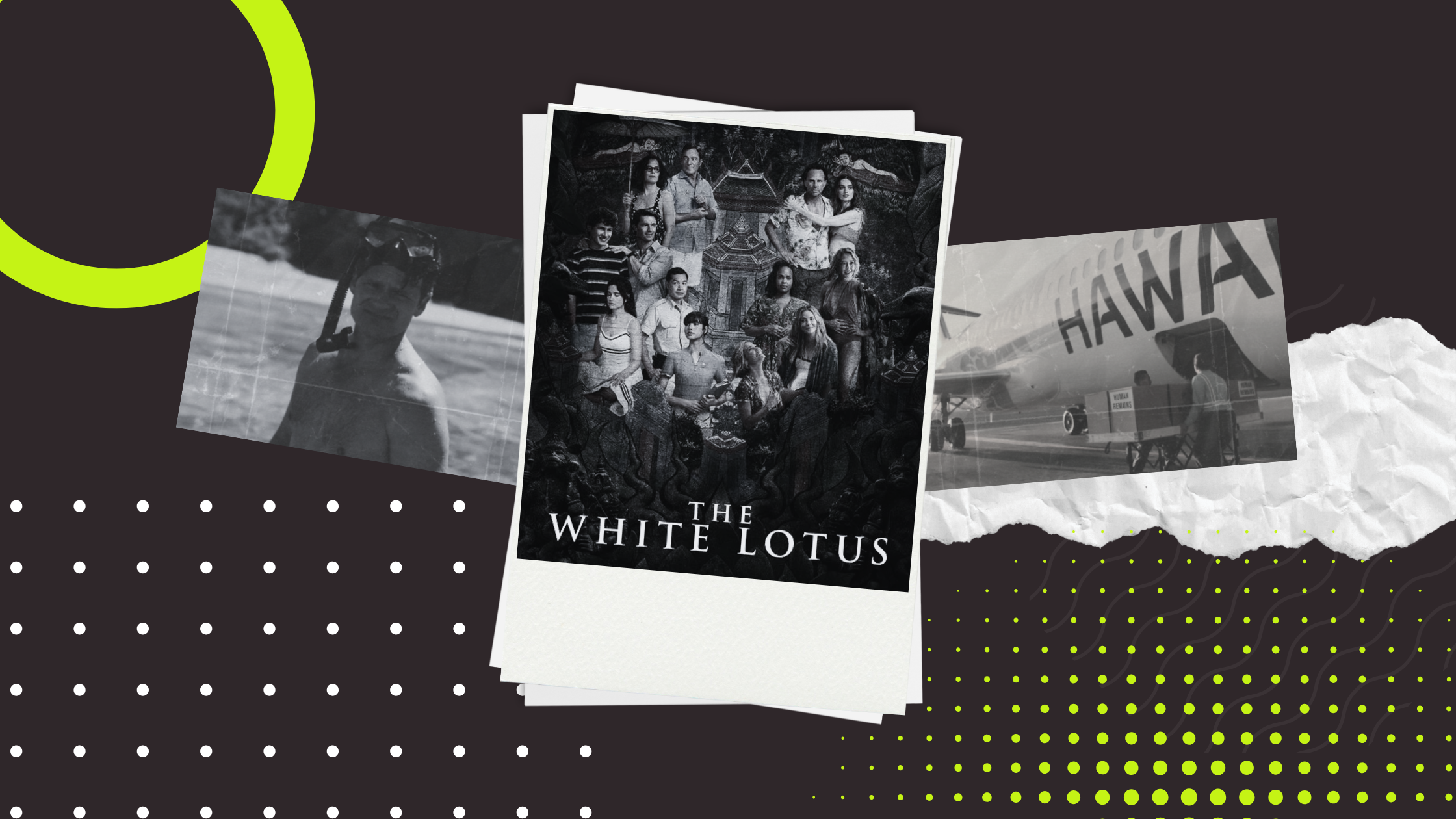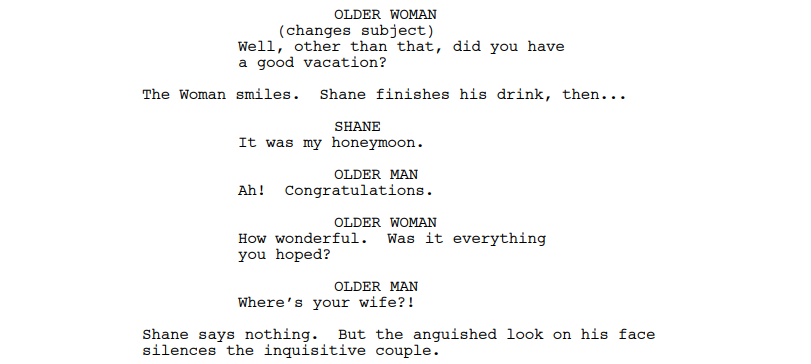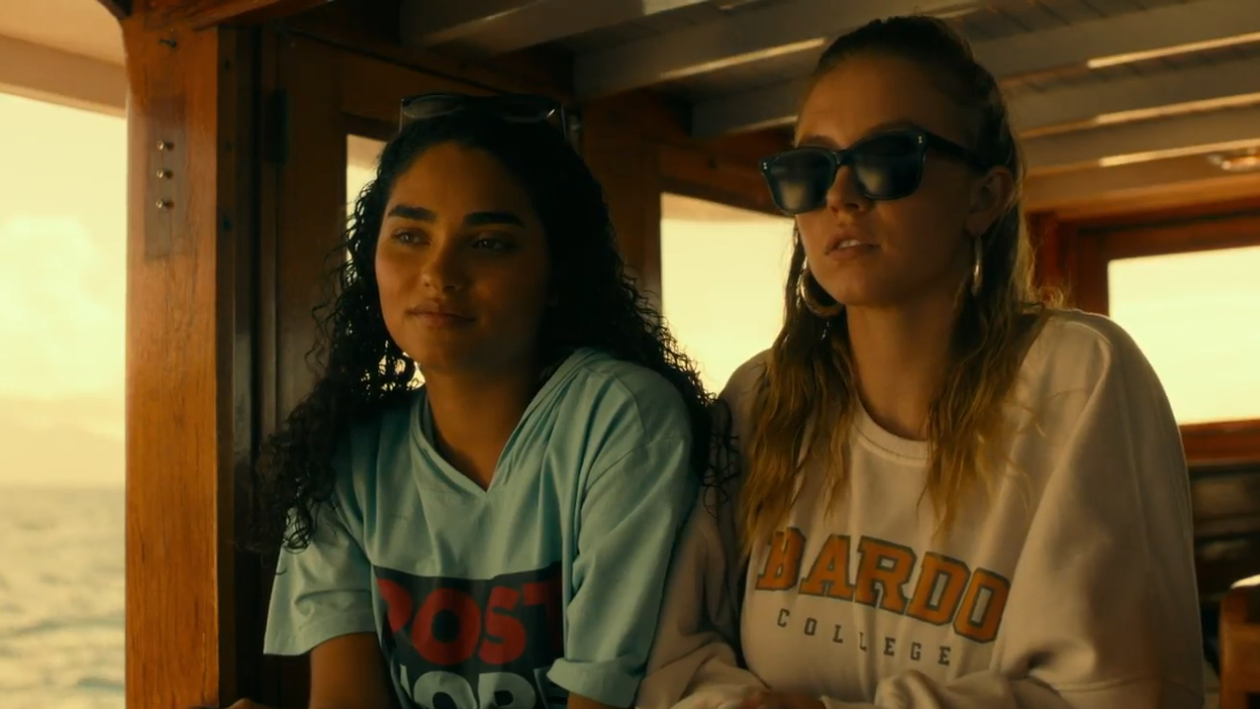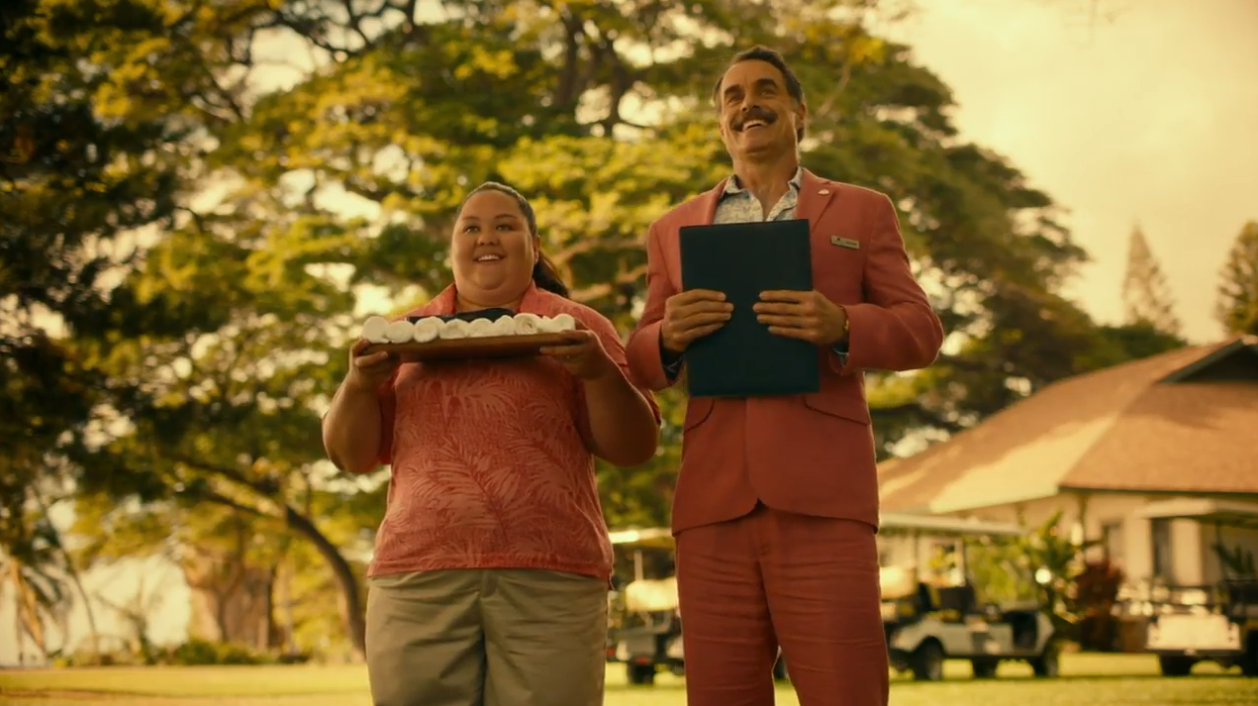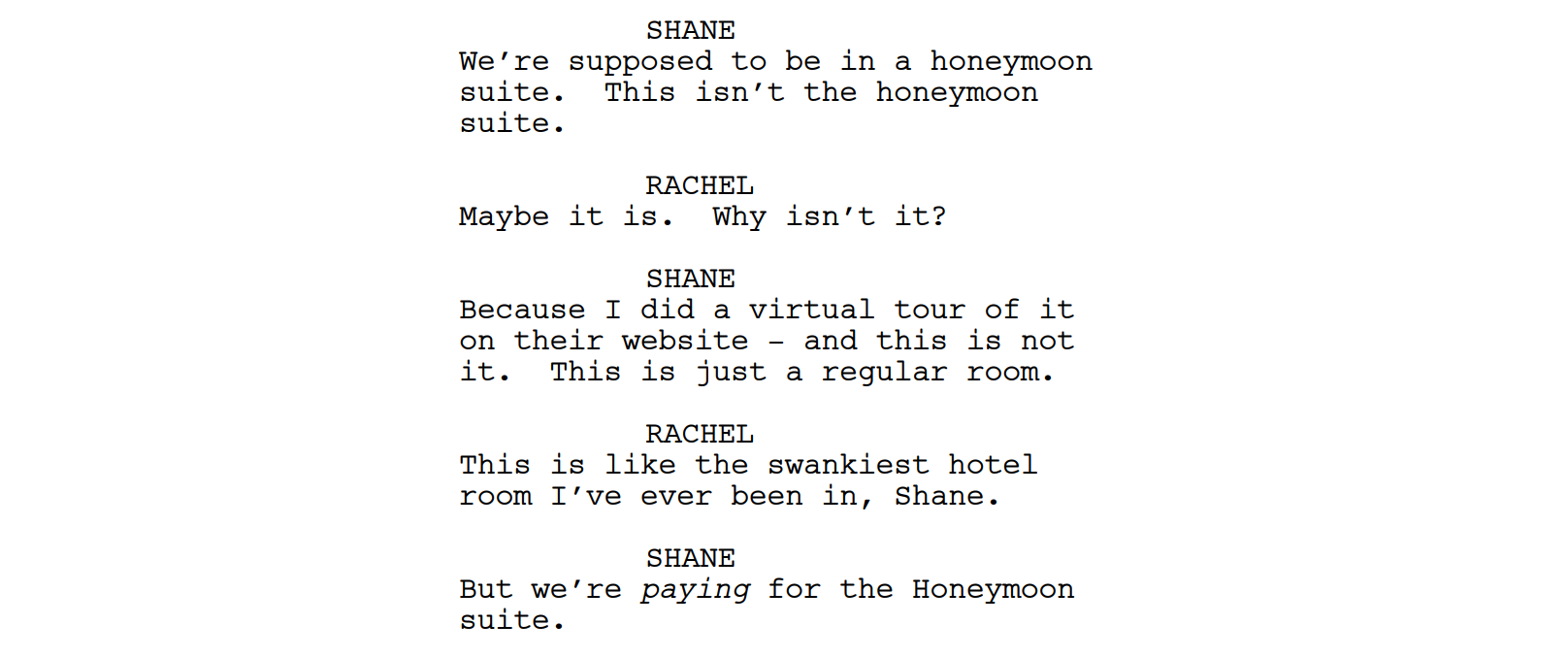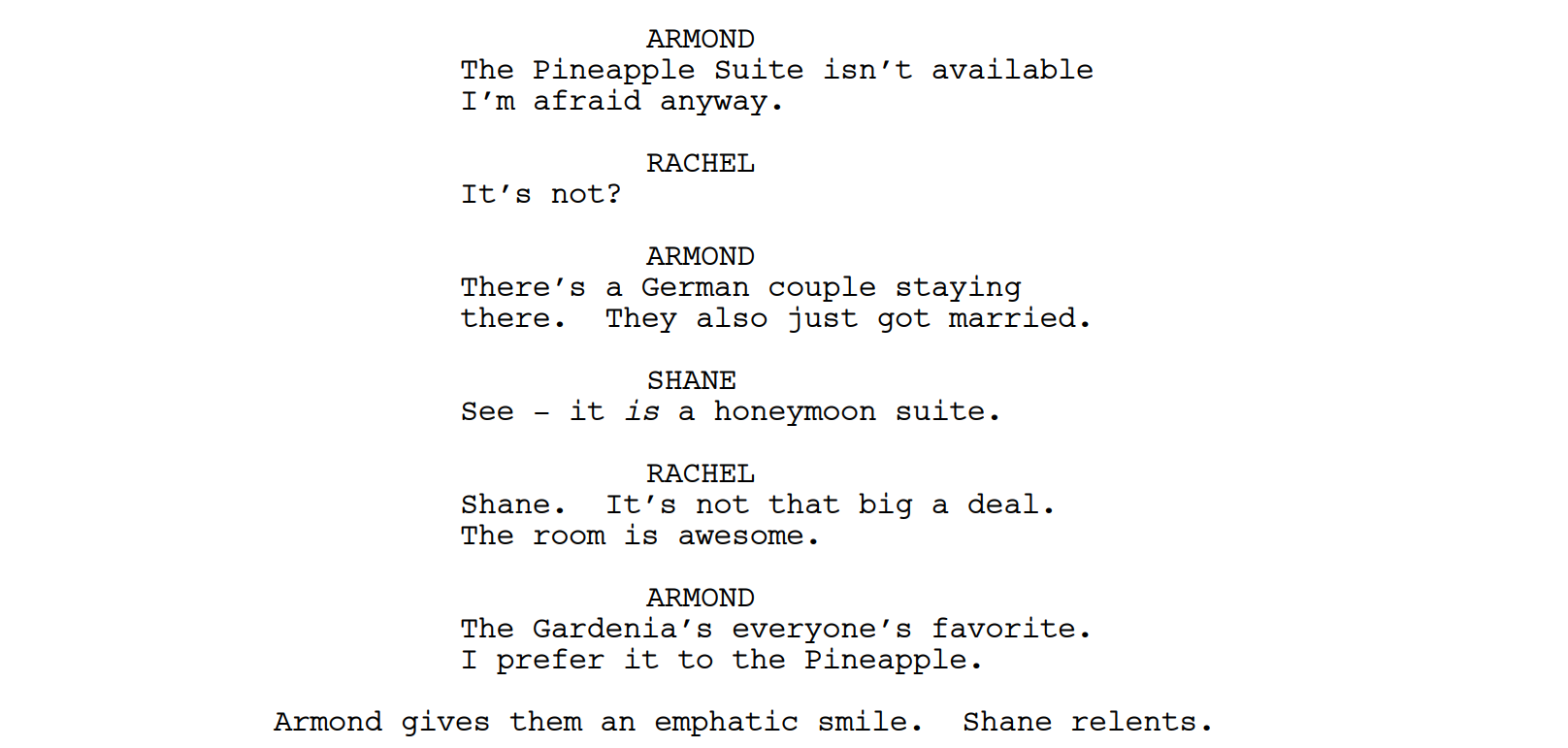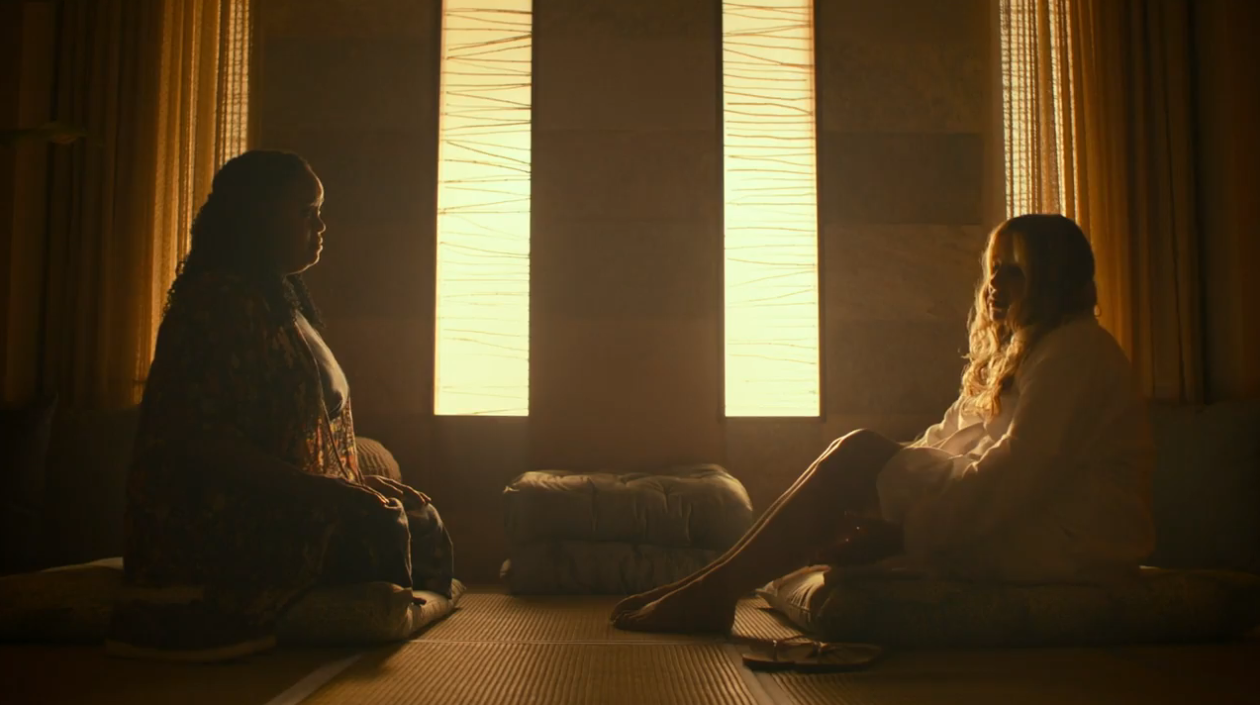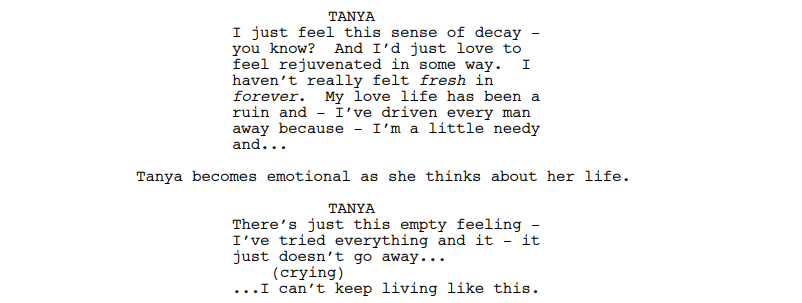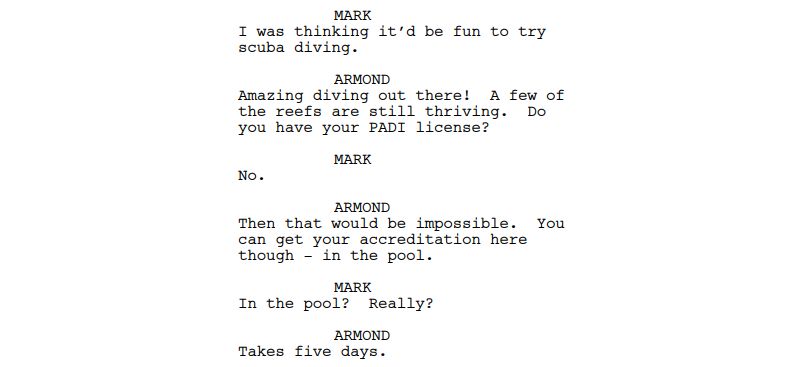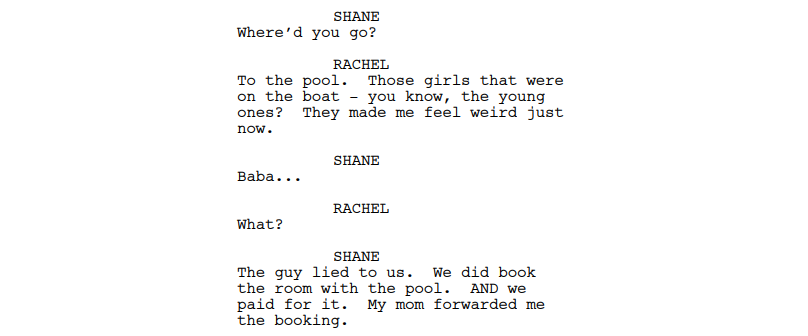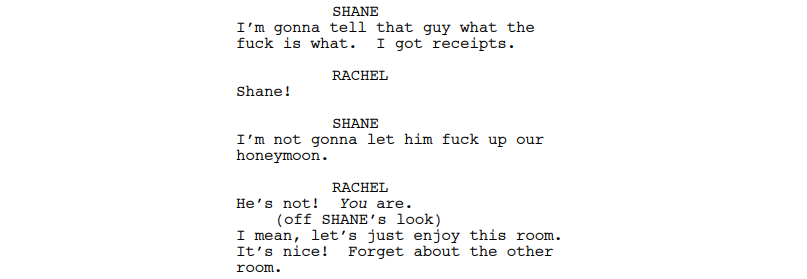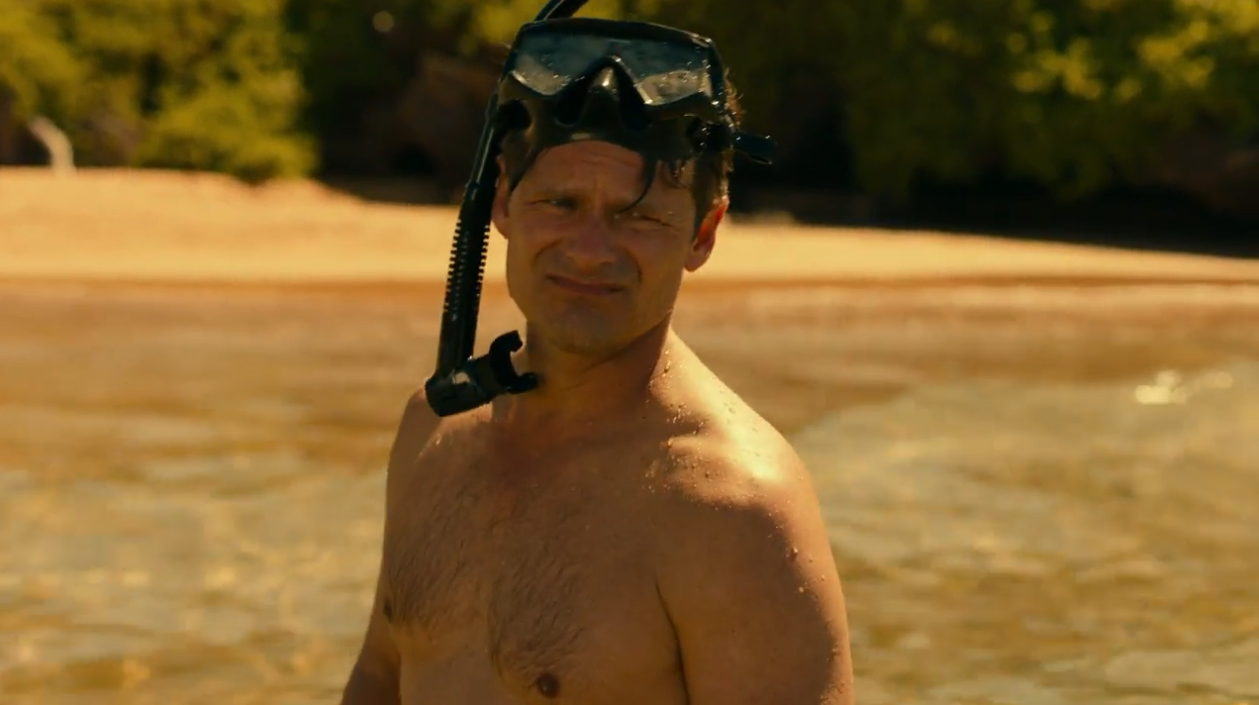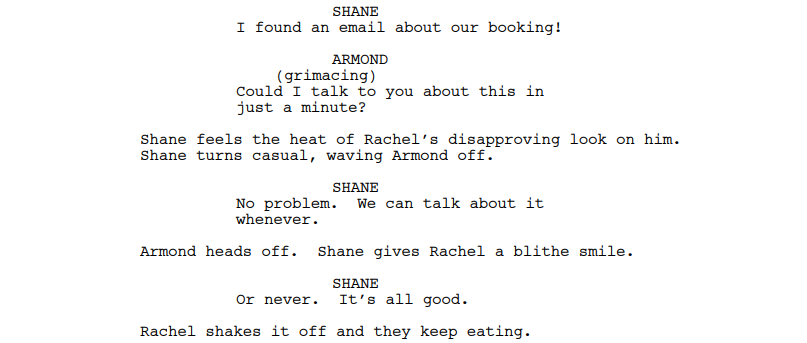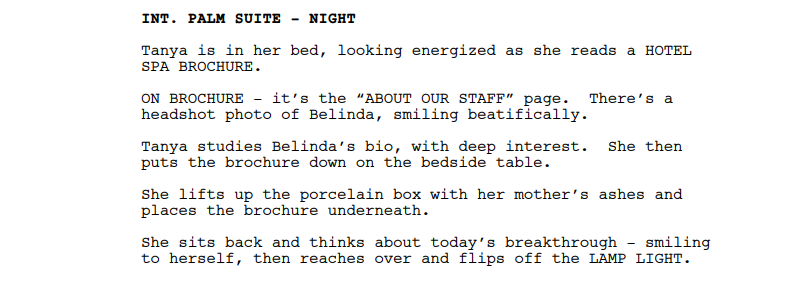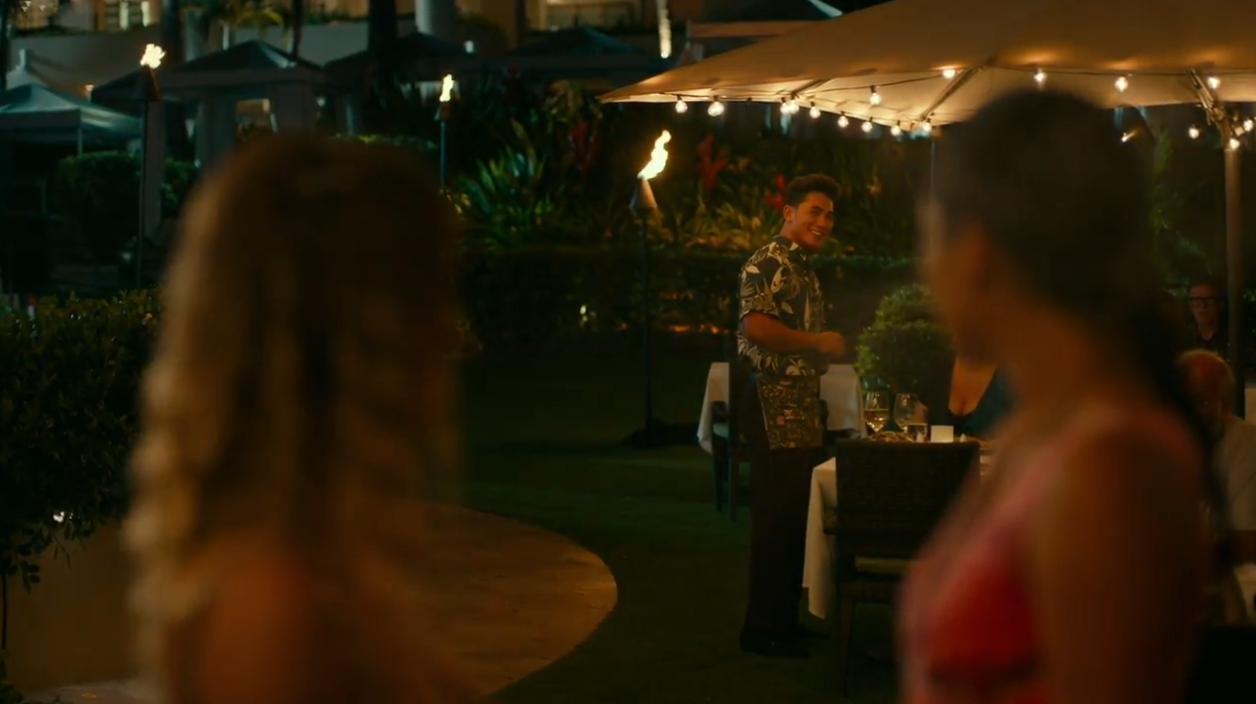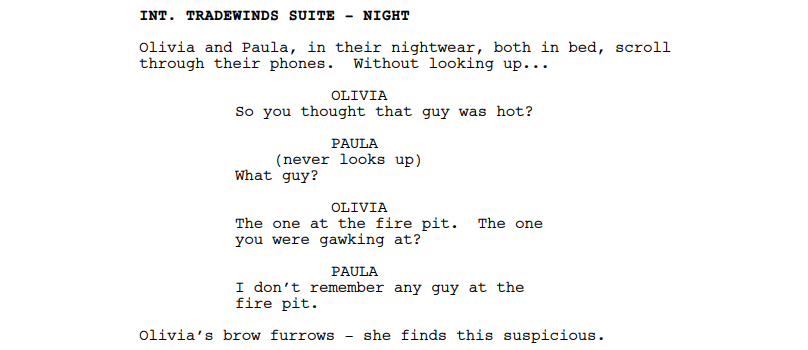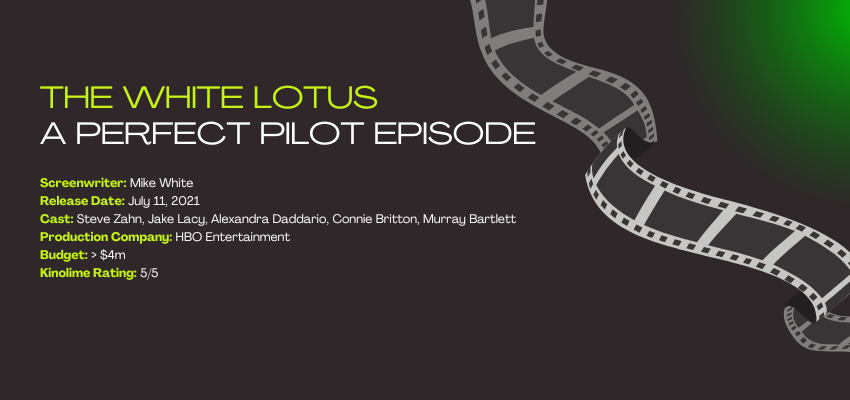Analysis - The White Lotus - A Perfect Pilot
Mike White’s The White Lotus seems to take Jean-Paul Sartre’s famous quote- “hell is other people” - quite literally. White explores how the pressure of social expectation can smother any chance of living freely or authentically. Often, it’s not even what others think, but what we think they think that pushes us to act in a way that is unfaithful to our authentic selves. We don’t live how we want to, we live how we think we should. White’s exploration of this notion is incredible, it’s satirical but measured, class conscious but relatable, blunt but contradictory, and induces a painful level of cringe while still being propulsive. In the wake of the wildly successful third season of the HBO show, we’ll examine how White wrote the perfect pilot.
You can’t assess an episode one in the same way you would a feature - it’s a whole different beast. A feature is a self-contained work; a pilot, on the other hand, wears a dozen hats. It’s a launchpad, a blueprint, a mystery. It’s meant to hook you. Structure and rules take a backseat to the primary objective: convincing producers to invest money in your show - and audiences to invest time in your story.
Like a cold open in a film, a pilot is a microcosm of what’s to come. It should be packed with setup, bookends, and foreshadowing. The best pilots know where their story is headed; They’re not written just hoping for a pickup and figuring out the rest later. They’re crafted with purpose, with a clear vision of where things will land by the final episode. Let’s jump in!
OPENING IMAGE
We open with a flash forward - the latest chronological moment in the show’s timeline, grabbing the audience and asking them to lean in. SHANE, a solo traveller, sits on a plane. His chatty neighbors probe him about his vacation, asking if it’s true someone was killed at the Lotus resort. He confirms it, then dryly asks if they saw the body being loaded onto the plane.
As the conversation unfolds, it’s hinted that the victim - the body in the cargo hold - could be Shane’s new wife. But he’s not grieving. He’s simmering with resentment.
It’s a brilliant opener - introducing a character, a dose of dramatic irony, the complex drama/comedy genre, and the sharp satire that defines the series. We’re cast into an instant state of suspense: from now on, every character we meet - except Shane - is a potential victim.
ACT ONE
The first act lays the table, introducing the key players and supporting cast. While features often show us a character’s ‘old world’ before the inciting incident shakes things up, modern TV tends to drop us straight into the deep end - characters already existing within the ‘new world.’ In The White Lotus, each episode typically spans a full day, from morning to night, following a rough four-act structure.
The first act begins ten days before the opening image, where we meet Shane and his new wife, RACHEL, as they arrive at the Lotus resort by boat alongside a handful of other guests. Among them are OLIVIA and PAULA, two sharp-tongued 19-year-old college students who pass the time by inventing lewd, elaborate backstories for the newlyweds and their fellow guests.
This moment sets Olivia and Paula up as keen observers of others' interior lives, ready to invent gossip where facts are scarce, all while precociously tuned into social dynamics. Their attention then shifts to heiress TANYA, followed by MARK and NICOLE - who, we soon discover, are Olivia’s parents.
As guests begin arriving at the Maui dock, we meet assistant manager ARMOND and local new-recruit CARMEN. Armond, a seasoned staffer, tries to impress upon Carmen the hotel chain (the White Lotus) ethos: a vague anonymity that puts guests at ease and feeds their hazy fantasies. But we quickly get a glimpse that Armond’s temperament doesn’t quite match the resort’s laid-back vibe when he points out a dollop of mayonnaise on Carmen’s uniform.
Carmen is the first character with a clearly definable motivation; survive her first day on the job and impress her boss. And she’s off to a bad start. We’re also introduced to BELINDA, the spa director. In these quick moments, we’re economically setting up junior staff, senior staff, and guests - three groups destined to interact and inevitably clash.
First off the boat is the Rohrbacher family - parents Mark and Nicole, daughter Olivia, and moody teen son QUINN. Paula is with the party as Olivia’s plus one. DILLON takes them to their room. Next, Shane and Rachel arrive, with Armond attributing Shane’s surname to Rachel - a thrilling moment for her just two days after their wedding.
Then Tanya, who comes from privilege and money, bypasses the introductory pleasantries. She NEEDS a massage, immediately. Armond has the acuteness to pretend Belinda can at least try, shifting the responsibility onto her to let Tanya down. She asks Tanya to visit the spa later.
With the main cast introduced and some key points of conflict set up, we’re move into…
ACT TWO
In two, characters typically resist accepting their new reality, ignoring the warning signs and maintaining some optimism. That’s exactly what happens here, as the guests settle into their suites, only to find that the problems they tried to leave behind have followed them to Hawaii.
Shane realizes they’re in the wrong room. While Rachel tries to smooth things over, Shane fixates on the classification. His discomfort grows as Rachel’s efforts to ease his concerns fall flat, and he hates being reminded that his mother is footing the bill. Shane spins his frustration as concern for his wife’s needs, then storms off to complain to Armond.
Tanya is escorted to her suite by Carmen, but panic sets in when she can't find a plastic bag containing a sentimental item. Carmen eventually locates it - discovering that it holds the ashes of Tanya’s late mother - the distribution of which is the purpose of her trip. We get a strong sense of Tanya’s deep anxiety and constant despair.
Carmen changes her shirt, revealing she's heavily pregnant - a fact she's kept hidden. She runs into Armond, who affirms that his interest in caring for his guests is only veneer-deep.
Shane confronts Armond about why they didn’t get the Pineapple Suite, which the website claims is the honeymoon suite. Armond insists they got exactly what they booked. His tone is slightly sarcastic, falling short of the effortless service the Lotus promises. Rachel gets the ick from his behavior and begins second-guessing her big life choice.
Armond confesses to Carmen that he double-booked the suite, explaining that wealthy guests really just want to be made to feel important. Carmen, clearly struggling to hold herself together and visibly uncomfortable, quietly agrees.
In the Rohrbachers’ family suite, Nicole scolds Olivia for trying to make Quinn sleep in a closet. Nicole can’t switch off her businesswoman desire to micromanage, even on vacation. Nicole tells Olivia she was generous enough to let her bring a friend, so the least they can do is afford Quinn some comfort. Quinn just wants to be left alone with his phone and music, seemingly unenthusiastic about anything life has to offer.
We find Mark inspecting his testicles, convinced he has testicular cancer. Due to receive test results tomorrow, Mark notes that his father succumbed to cancer at just 46, the same age Mark is now. To kill two birds with one stone, Nicole suggests Mark take Quinn out for some father-son bonding.
With the lingering concerns of their lives established - Mark’s cancer, Shane’s indignation, Carmen’s pregnancy, Armond’s apathy, Tanya’s grief - we’re ready to move into…
ACT THREE
Into Three, we deepen existing conflicts, fanning the flames and giving the audience a clear sense of where things are headed: it’s only going to get worse and weirder from here. Typically in your third act, you throw some curveballs, inverting some of the expectations you have guided your audience to believe thus far.
Since Belinda can’t offer Tanya a massage, she suggests a brief consultation on Tanya’s wellness needs. She reveals her intent to scatter her mother’s ashes in the ocean - a gesture that’s already exacting a heavy toll on her.
Shane calls his sycophantic mother, confirming their room was supposed to have a plunge pool on a private deck. While he reluctantly accepts they won’t get the suite they want, he continues to complain about principle.
Rachel excuses herself and finds a recliner by the pool, where she notices Olivia and Paula reading ‘performative’ books, flexing their pseudo-intellectualism. This is a surprisingly subtle beat; it highlights the absurdity of being young and untouchable - everyone older is ridiculous and expiring, anyone younger is a glorified toddler, and peers are mere competition. Their lives are a constant series of transactional judgments, but they invite the audience to introspect - we are doing the exact same thing.
Belinda guides Tanya through mantras and affirmations that grow increasingly ludicrous. While we’d expect Tanya to feel dissatisfied, instead, they seem to have a profound effect on her.
Carmen’s water breaks in the hotel lobby. Still too shy to tell Armond she’s going into labor, she quietly endures his instructions, ignorant to her developing condition.
Mark and Quinn’s excursion is quickly derailed by Armond’s red tape. The activities on offer are either unavailable due to recent hurricanes or come with near-impossible entry requirements. Surfing lessons are inexplicably scheduled for 6 a.m., and snorkeling doesn’t sound worthwhile.
Seeking connection at the wealthy retreat, Rachel introduces herself to Olivia and Paula. We might assume she would be a natural fit for the slightly vapid teens, but instead, they eagerly seize the opportunity to interrogate and coldly analyze her. She fills the silence by mentioning that she wrote an article on Nicole, the CFO of a brand called ‘Poof.’ It’s unclear whether they’re jealous of Rachel’s rich husband and charmed life or view her as someone trapped in a pathetic, conventional existence.
Tanya feels rejuvenated after her session with Belinda and hopes to spend more time with her. Unsure how else to deepen their connection, Tanya tips her a $100 bill to secure her favor.
ACT FOUR
Some hour-long pilots will have five acts, but The White Lotus operates with just four. The fourth is the most dynamic of the acts, where characters take the actions they’ve been plotting or ignore the advice they’ve been given.
Rachel returns to Shane, who’s spent the whole time covering himself with a paper trail of confirmation emails and website listings, completely uninterested in actually experiencing his honeymoon.
He dubs this exchange ‘their first marital spat’, and promises not to bring up the room issue again. The fact that Rachel snaps so quickly shows us how irritating Shane is already, and how unsettled she feels from her weird conversation with Olivia and Paula.
Mark and Quinn try and fail to enjoy snorkeling in the afternoon. Still fixated on his self-diagnosed cancer, Mark tries to deliver an awkward paternal lesson. Quinn isn’t mature enough to grasp the lesson of the parable, instead interpreting it as Mark expressing insecurity.
Olivia and Paula condescend to Nicole about politics. The delicious irony of their generational divide is clear - looking down their noses toward one another from opposite sides of the political fence, while still living the lofty lives of the extremely wealthy.
Dillon informs Armond that Carmen has gone into labor. Pulled into the chaos, Armond finds half the hotel staff trying to calm Carmen down. He tells her she can’t give birth on her first day on the job, but it’s of little consequence. They await a doctor’s arrival.
Shane immediately breaks his promise, not only bringing up the suite allocation issue again but also pointing out the Germans who ‘took’ their room. He confronts a panicked Armond.
Armond turns to Belinda for help, falsely assuming she has some midwifery experience. In a rare moment of self-reflection, Armond wonders what kind of manager he is for not even noticing when one of his employees is about to give birth. While he’s absorbed in tending to the rich guests, Carmen is so desperate for income in the competitive tourism industry that she’s willing to hide something as serious as an imminent pregnancy.
Tanya goes to bed, fixated on Belinda to an uncomfortable degree, forecasting that this will quickly become a problem.
The teens spot KAIMI, a local employee, and immediately take an interest in him. This creates a rift between them - they’ve been a united front in everything so far, but competing for the affections of the same man puts them at odds.
Olivia asks Paula about her interest, but Paula shuts it down, making this spark of conflict feel even more significant.
The worst possible thing for Mark’s anxiety happens: he gets a call from the Medical Centre with his results, but the call gets disconnected when they transfer him to the doctor. The nurse promises they’ll call him back. His mind starts to spiral… how bad is the diagnosis if they need the doctor to explain it? Filled with dread, he braces for a long night of waiting for the phone to ring.
Before bed, Rachel voices her concerns about the people she and Shane will become, deconstructing today’s behavior. He reassures her, promising things will be okay - that they’ll always be in love and have each other.
On this note of dramatic irony, the episode concludes.
WHY IT’S GREAT
Among many admirable writing traits, I want to underline how tough it is to introduce all these nebulous characters, leaving us unsure if we like them, and still maintain the audience’s interest. There’s no clear protagonist to latch onto, and we don’t know where it’s all heading. It’s incredible how White juggles so many characters and interconnected subplots while ensuring attentiveness.
The cold open deserves massive credit for making the audience feel smart for figuring out who the body likely is, only to then throw that assumption into question and open up a whole new set of possibilities. Who among the guests is capable of murder? Who’s abrasive enough to be the victim? It allows the audience play detective- Agatha Christie style - making it easy to manipulate them with red herrings and misdirection. Getting them hooked this way allows for maximum manipulation - and the emotional response that comes with it.
Carmen’s experience at the resort stands in stark contrast to the rich guests. While they indulge in an exploitative tropical retreat, she’s trying to capitalize on the very system that oppresses the local people. Similarly, Kaimi exists merely as an object of desire for the teens, a background character with no real value to the hotel or its guests, despite Armond’s claims. The Hawaiians remain overlooked and undervalued, a reminder of the inequality woven into the resort’s fabric. This is extremely fertile territory to explore further in subsequent episodes.
While some characters don’t yet have a proper introduction - Kaimi, Dillon, Nicole, Quinn - we have a pretty good idea of who we don’t like. Shane and Olivia seem to be the most provocative characters, but White manages to make them variable in subsequent episodes. White has a knack for making the obnoxious character suddenly relatable, or the loveable one suddenly detestable. He doesn’t offer an impartial introduction to his players, allowing us to make up our minds as we learn, he’s happy to make us hate someone one moment, empathise with them the next - making us feel like we’re on a rollercoaster.
In an age of satire that bashes the audience over the head with its message - Heretic, The Menu, The Substance, Triangle of Sadness, Don’t Look Up - we have to give props to White for writing something subtle and clever. Could we do six episodes of ‘rich people are bad?’ Sure, but it sounds dull. Instead, we get flawed characters and we’re encouraged to make our own minds up about them, rather than having our hand held by the messaging.
HOW IT COULD BE BETTER
Nothing is perfect, it can always be improved.
I first watched The White Lotus solo. It wasn’t until the third episode that I thought my wife will love this too. So, I rewatched the first two episodes with her, and I picked up so much more the second time around. In a way, this is a criticism disguised as a compliment. The pilot doesn’t quite pull you in enough to make you feel like you must watch the next episode. A great pilot makes you obsessed from the start. If the pilot followed the common practice of a fifth act - designed to introduce a cliffhanger and entice an appetite for the second episode - we may be more attached to the pilot. This is a tactic employed by certain episodes of the season and in subsequent seasons, but feels absent here.
While the opening image offers us an outrageous insight into the plot trajectory, I don’t feel that the pilot concludes with a strong identity of how the show looks week to week. Will episode two feature more micro-aggressions and minor frictions, or will it take a major step up? Hinting toward this seems advisable. If we conclude with a major development that will dominate the second episode, we know what to expect. But instead, we finish with a calm conversation. Not Shane sneaking out while Rachel sleeps to confront Armond. Not Tanya escalating her attachment to Belinda by stalking her. Not Mark discovering he has two weeks to live.
The principal responsibility of the pilot is to prepare us for what’s to come, and we want to know what episode two will entail.
With all that said… we still have to award The White Lotus pilot a 5/5.

